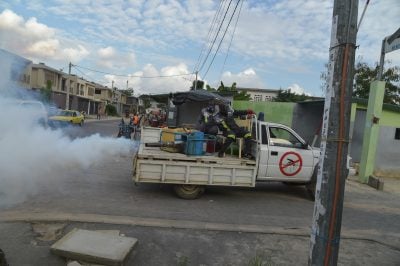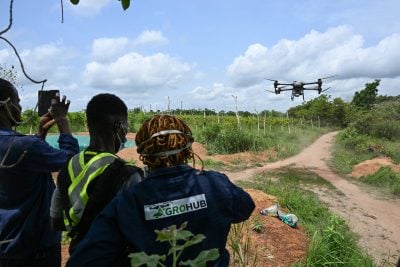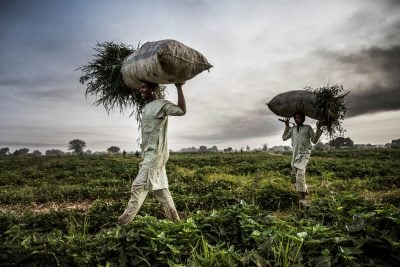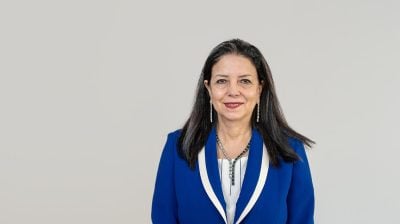The main operators in the country are South African-owned MTN Nigeria, with 45m subscribers, followed by Nigeria’s Globacom with 28m, Airtel of India with 25m and relative newcomer Etisalat of the UAE with 15m.
As in other parts of Africa, the success of the telecoms industry over the past decade has shown exactly what the private sector can achieve in Nigeria. Domestic and foreign firms have invested billions of dollars in providing the physical infrastructure, marketing and distribution networks that have catapulted mobile telecommunications past the run-down land-line sector. The telecoms industry accounts for 5.6% of Nigeria’s GDP and the country has now overtaken South Africa as the biggest mobile market in Africa, becoming the tenth-biggest mobile phone market in the world in the process.
Market penetration has grown particularly quickly over the past three years. According to statistics from the Nigerian Communications Commission (NCC) in February, mobile penetration had reached 78.8% by the end of November, up from 69% in just nine months and a staggering increase from 29.9% in 2007.
However, this does not mean that almost eight out of 10 Nigerians own a mobile phone. Many people have more than one handset, often in order to separate their personal and business lives.
However, there are now more than 100m active mobile users in the country, creating a vast market for service providers. With the market almost saturated, operators are now competing over the provision of new services. The main operators in the country are South African-owned MTN Nigeria, with 45m subscribers, followed by Nigeria’s own Globacom with 28m, Airtel of India with 25m and relative newcomer Etisalat of the United Arab Emirates with 15m.
Mobile banking
All four main players are now focusing on increasing their average revenue per user (ARPU). The most obvious options are the provision of internet use and mobile banking, although the Central Bank of Nigeria (CBN) had been reluctant to licence the same kind of mobile banking operations that exist in East Africa.
This may have been because it has only recently brought financial irregularities under control and the last thing it needs is another front in the battle against banking crime. The 11 mobile banking licences issued by the CBN at the end of 2011 were relatively restrictive but a growing market is appearing, with at least 15 operations now up and running.
Stanbic IBTC Bank has launched a mobile banking service following the conclusion of an agreement with MTN Nigeria; Airtel Nigeria has joined with FirstBank of Nigeria; while Globacom has partnered with Mainstreet Bank to launch Quick Teller Mobile Banking. However, the CBN still insists that no mobile provider restrict its subscribers’ choice of banking provider.
After its cautious start, the CBN has now embraced mobile banking and has launched its Cashless Lagos Project to encourage subscribers to make payments using their mobile phones.
The scheme is partly designed to cut crime by reducing the amount of cash that people carry, but could also encourage the spread of banking services. There are more than three times as many Nigerians with mobile phones as with bank accounts. A spokesperson for Stanbic IBTC Bank stated: “Mobile money solutions will play a major role in integrating Nigeria’s huge informal economy, which is driven small-scale farmers, traders, craftsmen and other types of small and medium-sized businesses, into the formal economy.”
The NCC has the authority to intervene in the market and actively uses this power. Following meetings with consumer groups, operators and other sector stakeholders, the Commission reduced the maximum cost of domestic short messaging service (SMS) texts between rival networks from N10 ($0.063) to N4 ($0.025) from 5th February. Encouraging off-network communication should trigger a boom in SMS traffic and help to boost communication in the country. The NCC also advised operators to reduce the cost of international text messaging but stated that it would not seek to regulate that market at this time. Investors complain that various tiers of government have begun to impose charges on the erection of mobile sector infrastructure.
The president of the National Association of Telecoms Subscribers, Adeolu Ogunbanjo, said: “The imposition process is often fraught with litigations and argumentations which slow down network-expansion roll-out and service upgrade. On their own, they decommission base stations. Some councils are also decommissioning base stations for which, according to them, the operators do not have certificate of occupancy; while some hardly respond to request for permit to build base stations.”
Service quality
Complaints over service quality have also become more vocal over the past year. Spam text messages, dropped calls and inaccurate billing are cited as the main problems, while bombing attacks on telecoms towers affected services in the north of the country. Some base stations have still not been repaired because of the poor security situation in some areas.
Ogunbanjo said: “Though we complain about the poor quality of service as customers, we are also cognisant of the fact that operators’ facilities are not properly secured by the government as facilities belonging to telecoms networks are still not being given the required legal protection status as in other countries. This, we think, should be looked into by the government and other relevant stakeholders.”
ZTE is working alongside Etisalat to develop 3G services as part of its ARPU strategy. ZTE business consultant Ahtasham Rabbani told a workshop in Abuja: “To survive in the big data era, operators need to size the business model and build a strong, smart and cost-efficient network.
To develop the 3G connections, it involves a terminal strategy and hi-tech services. The 3G package needs to be explored a lot in Nigeria.” The proportion of Nigerians accessing the internet via mobile phones exceeded those gaining access via landlines for the first time in the final quarter of 2011. Some analysts argue that the country should focus on 4G technology and simply leapfrog 3G in order to bridge the digital divide with the industrialised world, yet the required investment is not yet available. In addition, far more consumers need to buy smartphones before operators will switch their investment to 4G.
Most Nigerian handsets are relatively low tech but BlackBerry is now marketing itself heavily in the country and already holds a 50% share of the local smartphone market. Last year, the Ministry of Communication Technology announced that the government would support the development of a national telecoms grid to encourage the use of broadband. The broadband penetration rate last year was just 6%.
The Minister of Communication Technology, Omobola Johnson, said: “Even though access to broadband using mobile phones is increasing, which amounts to an increase in the number of subscribers, what the statistics tell us is that most Nigerians still access the internet through public venues, such as offices, internet cafes, computer labs and others.”
The government’s plan may have been triggered by the completion of the Glo 1 subsea cable in 2011 and the West African Cable System (WACS) last year. The 14,200km fibre-optic WACS submarine cable provides a high capacity connection between West Africa, Europe and North America.
No sector operates in isolation. Our section on Nigerian agriculture (March 2013 issue) examined how the government is now banking on mobile connectivity to promote economic development in rural areas. Moreover, although solar power mobile phones are now available, access to reliable power supplies is required before fixed-line broadband services can take off.
The electrification of the nation would go a long way to supporting the digital revolution and it is now widely accepted that there is a correlation between teledensity and GDP per capita. Yet in the meantime, Nigerians are finding ways around the problem. Internet cafés are as popular in Nigeria as anywhere else on the continent, while many stallholders earn a living by charging mobile phones.
Want to continue reading? Subscribe today.
You've read all your free articles for this month! Subscribe now to enjoy full access to our content.
Digital Monthly
£8.00 / month
Receive full unlimited access to our articles, opinions, podcasts and more.
Digital Yearly
£70.00 / year
Our best value offer - save £26 and gain access to all of our digital content for an entire year!

 Sign in with Google
Sign in with Google 




